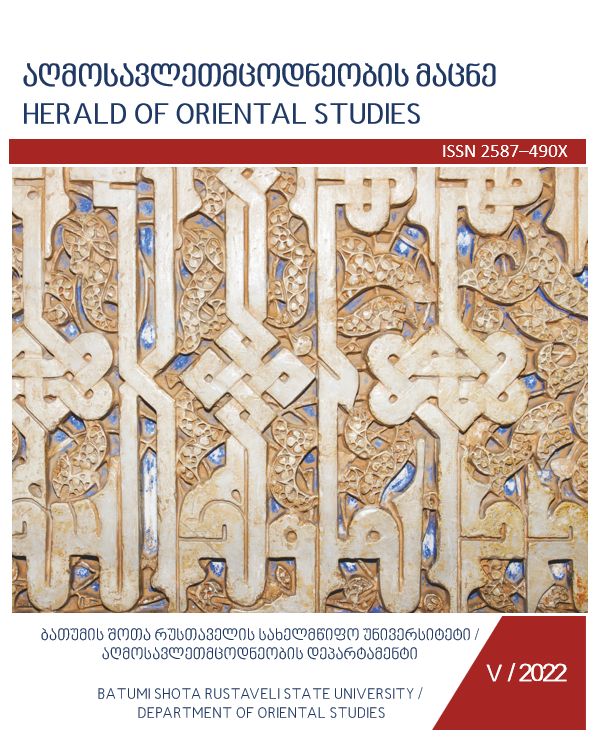ისლამური ფაქტორი კოსოვოს კრიზისში
The Islamic Factor In The Kosovo Crisis
Author(s): Levan TarieladzeSubject(s): Political history, Islam studies, Politics and religion, Transformation Period (1990 - 2010)
Published by: ბათუმის შოთა რუსთაველის სახელმწიფო უნივერსიტეტი, ჰუმანიტარული მეცნიერებატა ფაკულტეტის აღმოსავლეთმცოდნეობის დეპარტამენტის „ელექტრონული ჟურნალი“.
Keywords: Balkans; Kosovo crisis; political Islam; Islamic factor;
Summary/Abstract: The end of the "Cold War" laid the foundation for important political processes around the world. Especially in Europe, where many countries have experienced territorial changes, some have even been formed anew. Among the most outstanding of the mentioned processes are the events developed on the Balkan Peninsula, in the territory of the former Yugoslavia, where the disintegration processes developed with unprecedented cruelty and tragedies after the World War II. On the basis of ethnic, linguistic and religious differences in the Socialist Federal Republic of Yugoslavia consisting of six republics and two autonomous provinces (Kosovo and Vojvodina - Serbia), the humanitarian disaster that developed in the heart of Europe shook whole Europe and the world in general.From the wars of Yugoslavia, with its cruelty, scope and international involvement, the events of Kosovo stand out, which is a special and arguably the most resonant event of the post-Cold War world politics, the development and content of which were influenced by many factors. One of the main ones was the Islamic factor, since 90 % of Kosovo population was made up of ethnically Albanian Muslims. Islam is widespread in the Balkans, a region that has always had an exceptionally complex ethno-religious picture. The escalation of the crisis in Kosovo forced the Islamic states of the Middle East to pursue a forced foreign policy in the region. The Persian Gulf countries began to direct significant financial flows to the Balkans. Charitable foundations and organizations were launched, such as "Al Haramein", "Kosovo and Chechnya Aid Committee", "Kosovo Aid Committee" and others. As a result, Islam in the Balkans has become a serious political factor that affects the contemporary international relations of the region.
Journal: საერთაშორისო სამეცნიერო ჟურნალი „აღმოსავლეთმცოდნეობის მაცნე“
- Issue Year: 5/2022
- Issue No: 2
- Page Range: 151-163
- Page Count: 13
- Language: Georgian

